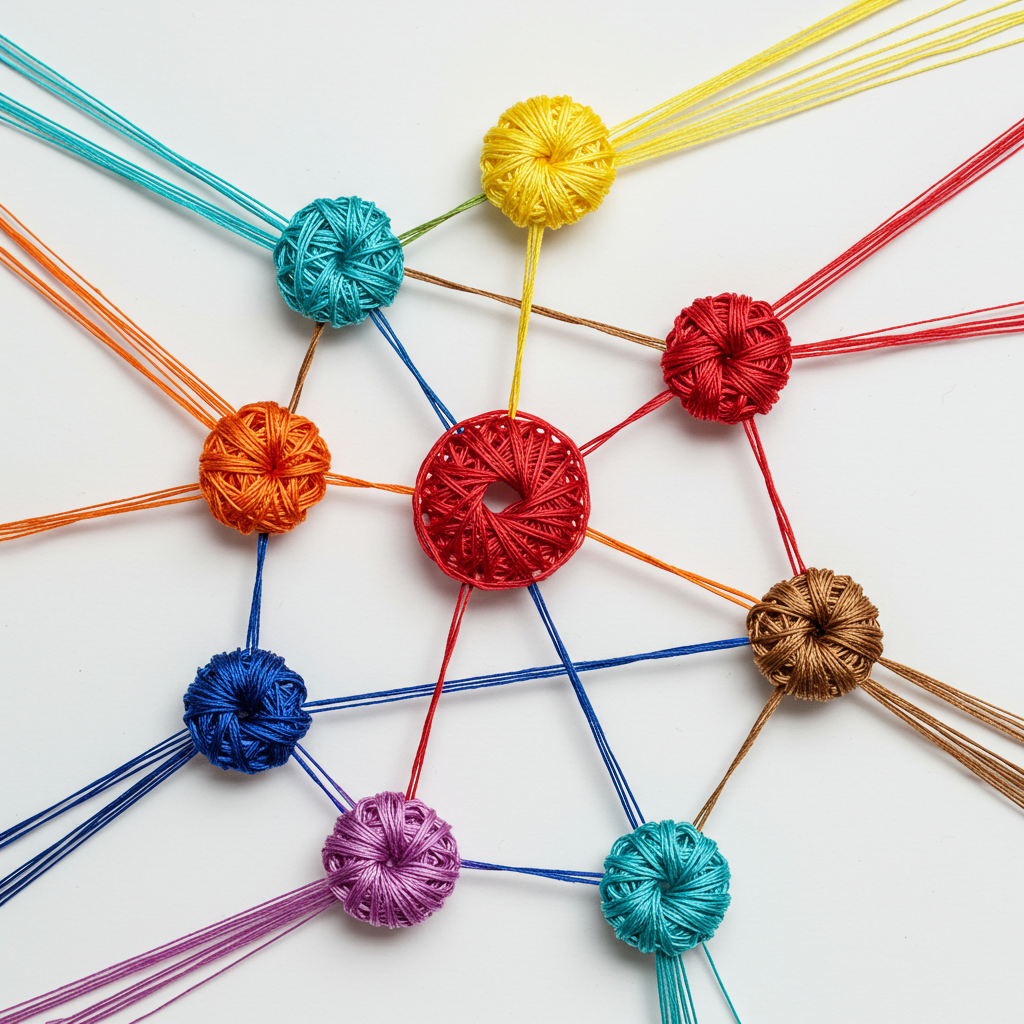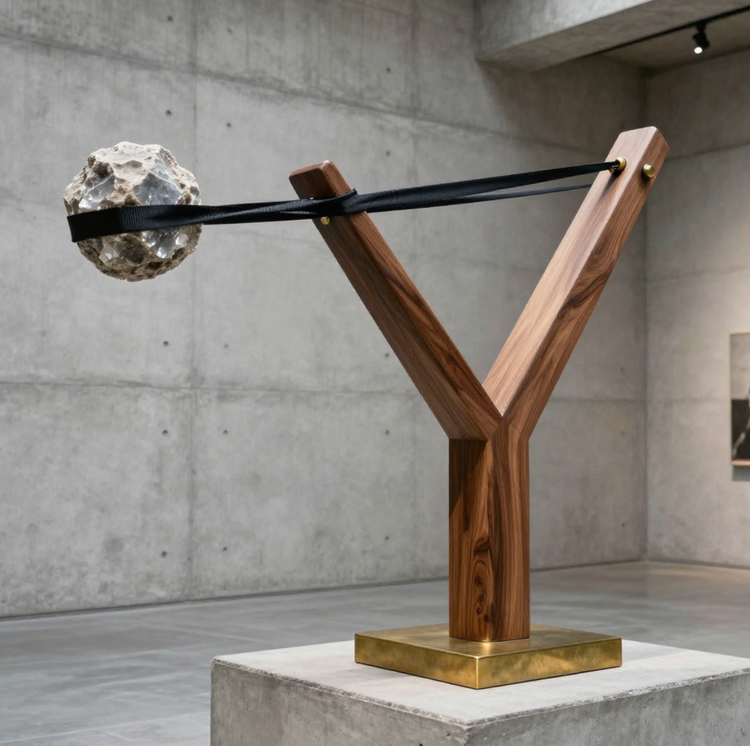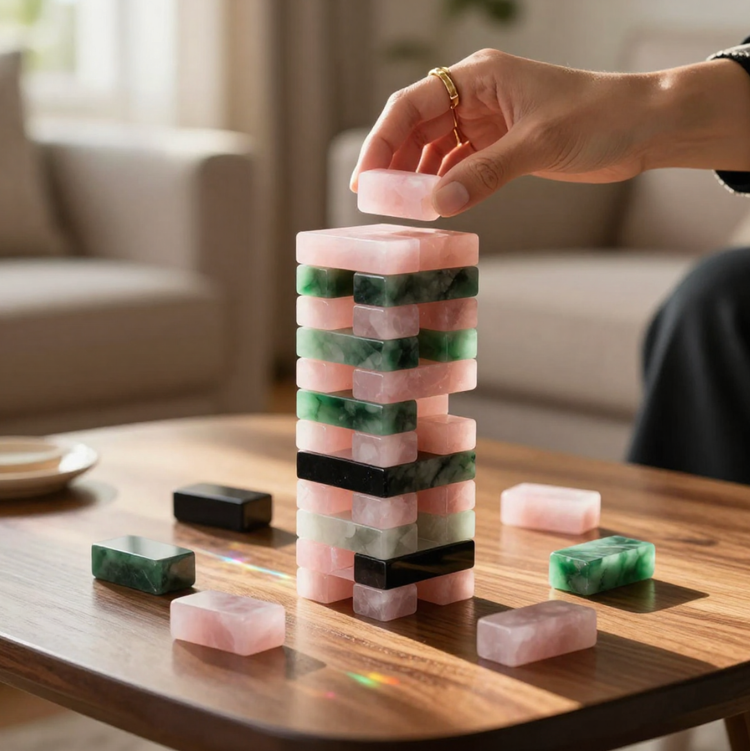The Enneagram in Love: Compatibility for Each Type

While no single framework can definitively dictate the success of a relationship, tools like the Enneagram offer profound insights into our core motivations, fears, and desires, which inevitably shape how we connect with others. Understanding your Enneagram type, and that of your partner, is not about finding a "perfect match," but rather about illuminating the unique dynamics at play, identifying potential areas for growth, and fostering deeper empathy.
The Enneagram posits nine distinct personality types, each driven by a fundamental worldview and a core emotional fixation. These underlying drivers influence everything from our communication styles to our conflict resolution strategies, making them crucial elements in the chemistry and longevity of romantic partnerships. By recognizing these patterns, couples can move beyond surface-level misunderstandings to address the root causes of tension, celebrate complementary strengths, and consciously navigate their relational landscape with greater awareness.
This exploration delves into the relational tendencies of each Enneagram type, offering a guide to understanding how they typically approach love, what they seek in a partner, and the common challenges and opportunities for growth within various pairings. It is a map, not a rigid set of instructions, designed to foster compassion and strategic communication in your most intimate connections.
Curious about your core motivations? Chat with Celeste to better understand your Enneagram type.
Type One: The Reformer
Ones are principled, purposeful, and self-controlled. In love, they seek a partner who embodies integrity, shares their values, and supports their desire for improvement. They bring immense responsibility, dedication, and a commitment to high standards to their relationships.
However, their inherent desire for perfection can manifest as criticality, both towards themselves and their partner. They may struggle with resentment if they feel their efforts are unappreciated or if their partner does not meet their exacting standards. Growth for a One involves accepting imperfection and learning to express needs without judgment. Ones can find grounding with a Type Nine's calm acceptance, or inspiration with a Type Seven's enthusiasm. They often appreciate the clear direction of a Type Three or the steadfastness of a Type Six. Conversely, they may find the impulsivity of a Type Seven challenging or the emotional intensity of a Type Four overwhelming, requiring both partners to cultivate patience and understanding.
Type Two: The Helper
Twos are caring, generous, and people-oriented, seeking to be loved and appreciated. In relationships, they are deeply supportive, nurturing, and often prioritize their partner's needs above their own. They strive to create a warm and emotionally connected environment.
The challenge for Twos lies in their potential for indirectness and passive aggression when their efforts go unnoticed or unreciprocated. They may struggle with feeling unappreciated or becoming over-involved in their partner's life, leading to codependency. Twos can thrive with Eights, who appreciate their support and offer protection, or with Threes, who value their encouragement. They might find the independence of a Five challenging or the self-critical nature of a One draining, necessitating clear communication about boundaries and emotional needs.
Type Three: The Achiever
Threes are adaptable, ambitious, and image-conscious, driven by a desire for success and admiration. In relationships, they are often charming, confident, and highly motivated, aiming to present a successful front to the world and their partner.
Their primary challenge can be prioritizing work and external achievements over emotional intimacy, leading to a neglect of deeper feelings or an avoidance of vulnerability. Threes benefit from partners who value their ambition but also encourage authentic self-expression. They can find a stabilizing force in Nines, who offer calm acceptance, or mutual understanding with Ones, who share a drive for excellence. They might struggle with the intense emotional focus of Fours, who demand authenticity, or the skepticism of Sixes, who may question their motives, requiring a commitment to emotional honesty.
Type Four: The Individualist
Fours are expressive, creative, and deeply emotional, seeking to understand themselves and find meaning. In love, they crave deep, authentic connection and a partner who appreciates their unique identity and emotional intensity.
However, their focus on what is missing can lead to feelings of envy, melancholy, and a tendency to dramatize emotions. They may push partners away to test their loyalty or withdraw into their feelings. Fours often connect profoundly with Fives, who can match their intellectual and emotional depth, or with Nines, who offer unconditional acceptance. They might find the superficiality of Sevens or the image-focus of Threes challenging, necessitating partners who are willing to engage with their emotional landscape and respect their need for uniqueness.
Type Five: The Investigator
Fives are perceptive, independent, and analytical, driven by a need to understand the world and avoid being overwhelmed. In relationships, they value privacy, intellectual stimulation, and a partner who respects their need for space and self-sufficiency.
Their core challenge is detachment; they may withdraw emotionally or physically when feeling drained, making intimacy difficult. Fives need partners who can appreciate their insights without demanding constant emotional engagement. They often find a compatible intellectual and emotional partner in Fours or a grounding force in Nines. Conversely, the emotional demands of Twos or the constant activity of Sevens can feel overwhelming, requiring clear boundaries and mutual respect for different energy levels.
Type Six: The Loyalist
Sixes are committed, responsible, and security-oriented, driven by a need for safety and support. In relationships, they are loyal, reliable, and deeply committed partners, often seeking reassurance and a strong sense of trust.
Their primary struggle involves anxiety and suspicion, which can manifest as questioning their partner's motives or projecting their fears onto the relationship. Sixes need partners who are dependable and patient. They can find immense security with Nines, who offer stability, or with Ones, who provide clear direction. They might find the unpredictability of Sevens or the intense directness of Eights challenging, requiring a partner who can consistently demonstrate trustworthiness and understanding of their underlying anxieties.
Type Seven: The Enthusiast
Sevens are enthusiastic, spontaneous, and adventurous, driven by a desire to experience life fully and avoid pain. In love, they bring joy, optimism, and a playful spirit, seeking a partner who can share in their excitement and spontaneity.
However, their avoidance of discomfort can lead to impulsivity, commitment issues, and a tendency to move on quickly when things become difficult. Sevens benefit from partners who can ground them while still embracing their adventurous spirit. They often enjoy the shared joy of Twos or the dynamic energy of Eights. They might clash with the critical nature of Ones, the melancholic tendencies of Fours, or the reserved nature of Fives, requiring both partners to find a balance between structure and spontaneity, and to address deeper emotions.
Type Eight: The Challenger
Eights are confident, assertive, and protective, driven by a need to be strong and control their environment. In relationships, they are fiercely loyal, direct, and protective of their loved ones, bringing intensity and passion.
Their challenge lies in vulnerability; they may struggle to show their softer side, appearing confrontational or controlling, and avoiding emotional intimacy. Eights need partners who can stand up to them while also appreciating their protective instincts. They can find grounding with Nines, who offer calm and acceptance, or deep support with Twos, who are nurturing. They might struggle with the fear-based reactions of Sixes or the intense emotionality of Fours, requiring an Eight to learn to temper their intensity and allow themselves to be vulnerable.
Type Nine: The Peacemaker
Nines are accepting, agreeable, and supportive, driven by a need for inner peace and harmony. In relationships, they are steady, comforting, and diplomatic, striving to avoid conflict and create a peaceful environment.
Their primary challenge is passivity and self-forgetting; they may merge with their partner's desires, neglecting their own needs, or become stubborn when pushed. Nines need partners who can help them express themselves and affirm their worth. They often find motivation and clarity with Threes or Ones, and deep acceptance with Fours or Fives. They might struggle with the overstimulation of Sevens or the assertive demands of Twos, requiring a Nine to actively engage their own voice and boundaries, and for their partner to respect their need for quiet and autonomy.
Ultimately, the Enneagram in love is not about discovering predetermined "perfect" matches or avoiding "bad" ones. It is a powerful framework for self-discovery and relational insight. By understanding the core motivations, fears, and growth paths of ourselves and our partners, we can approach our relationships with greater compassion, intentionality, and strategic communication. The goal is to cultivate empathy, navigate challenges with wisdom, and build more resilient and fulfilling connections, recognizing that every pairing offers unique opportunities for mutual growth and deeper loveThe journey of love is a complex tapestry, woven with threads of shared experiences, individual histories, and deeply ingrained behavioral patterns. While no single framework can definitively dictate the success of a relationship, tools like the Enneagram offer profound insights into our core motivations, fears, and desires, which inevitably shape how we connect with others. Understanding your Enneagram type, and that of your partner, is not about finding a "perfect match," but rather about illuminating the unique dynamics at play, identifying potential areas for growth, and fostering deeper empathy.
The Enneagram posits nine distinct personality types, each driven by a fundamental worldview and a core emotional fixation. These underlying drivers influence everything from our communication styles to our conflict resolution strategies, making them crucial elements in the chemistry and longevity of romantic partnerships. By recognizing these patterns, couples can move beyond surface-level misunderstandings to address the root causes of tension, celebrate complementary strengths, and consciously navigate their relational landscape with greater awareness.
This exploration delves into the relational tendencies of each Enneagram type, offering a guide to understanding how they typically approach love, what they seek in a partner, and the common challenges and opportunities for growth within various pairings. It is a map, not a rigid set of instructions, designed to foster compassion and strategic communication in your most intimate connections.
Curious about your core motivations? Chat with Celeste to better understand your Enneagram type.
Type One: The Reformer
Ones are principled, purposeful, and self-controlled. In love, they seek a partner who embodies integrity, shares their values, and supports their desire for improvement. They bring immense responsibility, dedication, and a commitment to high standards to their relationships.
However, their inherent desire for perfection can manifest as criticality, both towards themselves and their partner. They may struggle with resentment if they feel their efforts are unappreciated or if their partner does not meet their exacting standards. Growth for a One involves accepting imperfection and learning to express needs without judgment. Ones can find grounding with a Type Nine's calm acceptance, or inspiration with a Type Seven's enthusiasm. They often appreciate the clear direction of a Type Three or the steadfastness of a Type Six. Conversely, they may find the impulsivity of a Type Seven challenging or the emotional intensity of a Type Four overwhelming, requiring both partners to cultivate patience and understanding.
Type Two: The Helper
Twos are caring, generous, and people-oriented, seeking to be loved and appreciated. In relationships, they are deeply supportive, nurturing, and often prioritize their partner's needs above their own. They strive to create a warm and emotionally connected environment.
The challenge for Twos lies in their potential for indirectness and passive aggression when their efforts go unnoticed or unreciprocated. They may struggle with feeling unappreciated or becoming over-involved in their partner's life, leading to codependency. Twos can thrive with Eights, who appreciate their support and offer protection, or with Threes, who value their encouragement. They might find the independence of a Five challenging or the self-critical nature of a One draining, necessitating clear communication about boundaries and emotional needs.
Type Three: The Achiever
Threes are adaptable, ambitious, and image-conscious, driven by a desire for success and admiration. In relationships, they are often charming, confident, and highly motivated, aiming to present a successful front to the world and their partner.
Their primary challenge can be prioritizing work and external achievements over emotional intimacy, leading to a neglect of deeper feelings or an avoidance of vulnerability. Threes benefit from partners who value their ambition but also encourage authentic self-expression. They can find a stabilizing force in Nines, who offer calm acceptance, or mutual understanding with Ones, who share a drive for excellence. They might struggle with the intense emotional focus of Fours, who demand authenticity, or the skepticism of Sixes, who may question their motives, requiring a commitment to emotional honesty.
Type Four: The Individualist
Fours are expressive, creative, and deeply emotional, seeking to understand themselves and find meaning. In love, they crave deep, authentic connection and a partner who appreciates their unique identity and emotional intensity.
However, their focus on what is missing can lead to feelings of envy, melancholy, and a tendency to dramatize emotions. They may push partners away to test their loyalty or withdraw into their feelings. Fours often connect profoundly with Fives, who can match their intellectual and emotional depth, or with Nines, who offer unconditional acceptance. They might find the superficiality of Sevens or the image-focus of Threes challenging, necessitating partners who are willing to engage with their emotional landscape and respect their need for uniqueness.
Type Five: The Investigator
Fives are perceptive, independent, and analytical, driven by a need to understand the world and avoid being overwhelmed. In relationships, they value privacy, intellectual stimulation, and a partner who respects their need for space and self-sufficiency.
Their core challenge is detachment; they may withdraw emotionally or physically when feeling drained, making intimacy difficult. Fives need partners who can appreciate their insights without demanding constant emotional engagement. They often find a compatible intellectual and emotional partner in Fours or a grounding force in Nines. Conversely, the emotional demands of Twos or the constant activity of Sevens can feel overwhelming, requiring clear boundaries and mutual respect for different energy levels.
Type Six: The Loyalist
Sixes are committed, responsible, and security-oriented, driven by a need for safety and support. In relationships, they are loyal, reliable, and deeply committed partners, often seeking reassurance and a strong sense of trust.
Their primary struggle involves anxiety and suspicion, which can manifest as questioning their partner's motives or projecting their fears onto the relationship. Sixes need partners who are dependable and patient. They can find immense security with Nines, who offer stability, or with Ones, who provide clear direction. They might find the unpredictability of Sevens or the intense directness of Eights challenging, requiring a partner who can consistently demonstrate trustworthiness and understanding of their underlying anxieties.
Type Seven: The Enthusiast
Sevens are enthusiastic, spontaneous, and adventurous, driven by a desire to experience life fully and avoid pain. In love, they bring joy, optimism, and a playful spirit, seeking a partner who can share in their excitement and spontaneity.
However, their avoidance of discomfort can lead to impulsivity, commitment issues, and a tendency to move on quickly when things become difficult. Sevens benefit from partners who can ground them while still embracing their adventurous spirit. They often enjoy the shared joy of Twos or the dynamic energy of Eights. They might clash with the critical nature of Ones, the melancholic tendencies of Fours, or the reserved nature of Fives, requiring both partners to find a balance between structure and spontaneity, and to address deeper emotions.
Type Eight: The Challenger
Eights are confident, assertive, and protective, driven by a need to be strong and control their environment. In relationships, they are fiercely loyal, direct, and protective of their loved ones, bringing intensity and passion.
Their challenge lies in vulnerability; they may struggle to show their softer side, appearing confrontational or controlling, and avoiding emotional intimacy. Eights need partners who can stand up to them while also appreciating their protective instincts. They can find grounding with Nines, who offer calm and acceptance, or deep support with Twos, who are nurturing. They might struggle with the fear-based reactions of Sixes or the intense emotionality of Fours, requiring an Eight to learn to temper their intensity and allow themselves to be vulnerable.
Type Nine: The Peacemaker
Nines are accepting, agreeable, and supportive, driven by a need for inner peace and harmony. In relationships, they are steady, comforting, and diplomatic, striving to avoid conflict and create a peaceful environment.
Their primary challenge is passivity and self-forgetting; they may merge with their partner's desires, neglecting their own needs, or become stubborn when pushed. Nines need partners who can help them express themselves and affirm their worth. They often find motivation and clarity with Threes or Ones, and deep acceptance with Fours or Fives. They might struggle with the overstimulation of Sevens or the assertive demands of Twos, requiring a Nine to actively engage their own voice and boundaries, and for their partner to respect their need for quiet and autonomy.
Ultimately, the Enneagram in love is not about discovering predetermined "perfect" matches or avoiding "bad" ones. It is a powerful framework for self-discovery and relational insight. By understanding the core motivations, fears, and growth paths of ourselves and our partners, we can approach our relationships with greater compassion, intentionality, and strategic communication. The goal is to cultivate empathy, navigate challenges with wisdom, and build more resilient and fulfilling connections, recognizing that every pairing offers unique opportunities for mutual growth and deeper love.


